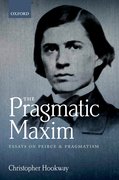Call for Papers by the John Dewey Society
Revisiting Experience and Education
The John Dewey Society calls for paper proposals for the Past Presidents’ Panel at its annual meeting, to be held in conjunction with the American Educational Research Association meeting in Philadelphia, April 3-7, 2014.
The Society invites submissions for a special panel of papers revisiting Dewey’s Experience and Education. In that work Dewey develops a set of criteria for educative experience. His presentation of his two criteria, Interaction and Continuity, draw upon and further develop some of the most enduring ideas in his philosophy.
Dewey wrote Experience and Education primarily as a response to the excesses of progressive education. He protested that progressive educators had merely reacted negatively to traditional education; they had failed to develop an adequate theory of experience. In Experience and Education he drew upon the theory of experience central to his late masterworks Experience and Nature and Art as Experience as an instrument for further progress in educational innovation.
The spread of experiential learning methods and computer-based learning – and the corresponding need of critical examination of these trends – are among the many reasons for revisiting Experience and Education and Dewey’s criteria for educative experience today.
In the wake of Experience and Education new forms of experiential education appeared – outdoor and adventure education, workplace education, arts-based education, and service learning among them. Experiential educators have also generated pedagogical methods used in conventional topics in schools and colleges. It is hardly an exaggeration to claim that citation of Experience and Education is obligatory in discussions of experiential education.
Limitations of the kinds of experiences one can have in school are made crystal clear by the potentialities of virtual environments. Digital computers have now spread on a global scale. In developed industrial-post-industrial societies just about every school and college classroom has a computer with a broadband Internet connection. Computers and the Internet open up new avenues for educational experience by greatly enlarging access to information and human association. Reliance on computer-based learning, however, may also reduce opportunities for contact with live teachers, fellow learners, and members of the local community, as well as vital experiences in the natural world.
Proposals may discuss or critique Experience and Education itself, or consider that book in relation to other works in the Dewey corpus, in relation to the broader field of philosophy, or in relation to any aspect of contemporary educational theory or practice.
Submit all proposals (prepared per instructions below) for individual papers via email with an attachment as a Word document. All proposals should be received on or before Monday, November 15, 2013, via email to Leonard Waks (ljwaks@yahoo.com), President-Elect, John Dewey Society and Professor Emeritus, Department of Educational Leadership, Temple University, Philadelphia PA.
Proposals accepted for presentation in this panel of the John Dewey Society will be notified by January 25, 2013.
Proposal guidelines
Part 1 (submit in the body of your email message):
(1.) Title of your paper
(2.) Your name, title, institutional affiliation (if any)
(3.) Your address, phone, email.
(4.) An abstract of up to 100 words.
Part 2 (in a Word document with all identifying information removed for “blind” review):
(1.) Title of your paper
(2.) A brief descriptive summary of your paper (maximum length 750 words), explaining your paper and its significance. List several references to place your contribution in the broader scholarly conversation!
About The John Dewey Society
Founded in 1935, the purpose of the Society is to foster intelligent inquiry into problems pertaining to the place and function of education in social change, and to share, discuss, and disseminate the results of such inquiry.



